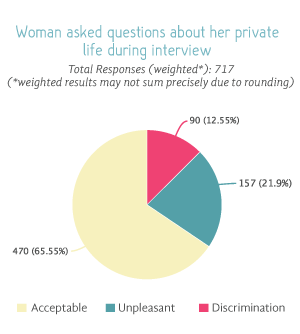News: 'The Labor Inspection as an Effective Mechanism for the Prevention and Elimination of Gender Discrimination in Labor Relations ' All News
-
Date Published:
2016-03-28
Equality of men and women at workplace is universally recognized around the world and constitutes a significant value of the protection of human rights. The introduction and implementation of the above principle is one of the most important directions of the work of the labor inspectorate.
The labor inspection is an independent body and both the employers and the employees are forbidden to influence it. This is an effective mechanism, which can play an important role in ensuring the equal protection of the rights of women and men despite the workplace and the field (p. 9).
It is noteworthy that the Labor Inspector, unlike Georgia, in the majority of the European countries is successfully operating and carrying out the monitoring to ensure the gender equality. In case of violations, it has the sanctions mechanism (p. 35). Often, gender discrimination in employment is revealed in terms of equal for the equal work of women and men. Studying, identifying and providing response on the above also constitutes the authority of the labor inspection (p. 36).
In a number of European countries, control of the adequate working conditions constitutes the responsibility of the labor inspection. As a rule, the labor inspectorate operating under the Ministry of Social Affairs and has the authority of inspecting the workplace. In Spain, based on the 2007 Equality Act (p. 2), the Labor Inspector was granted the authority to determine the issues of discrimination at workplace. Besides, in Ukraine, under the auspices of the International Labor Organization, the Labor Inspection has developed the program of seminars for the elimination of discrimination in employment (p. 76).
According to the standard established by the International Labor Organization’s 81th recommendation of 1947, the effective Labor Inspection is directed towards the implementation of the legislation and protection of the employees’ working conditions.
The Labor Inspection operating in Georgia does not correspond to the international standards. Namely, Resolution N19 of the Government of Georgia dated 18 January, 2016, on the “Approval of the Labor Inspection State Program for 2016,” alongside the other gaps, does not cover the fundamental principle of the International Labor Organization such as ensuring the gender equality. As for the statute of the Labor Inspection Department dated 6 January, 2015 and the amendments of 21 April, 2015, its paragraph 7 indicates that studying the discrimination cases and its causes, their registration and issuance of the recommendations by the Labor Inspector will take place after the relevant changes in the legislation. Consequently, the above regulation, in the framework of studying the discrimination facts, cannot be efficient and effective, stemming from the fact that currently, the relevant amendments have not been made to the legislation.
Accordingly, the existence of this form of labor inspection in Georgia raises questions about whether this mechanism is efficient, especially when the countries, under the Association Agreement with the European Union, has undertaken the responsibility to establish an independent, impartial Labor Inspection which will have the right to impose sanctions (Annex 30.)
